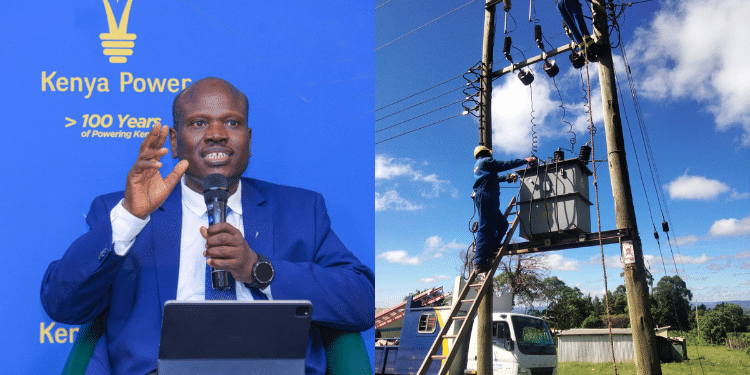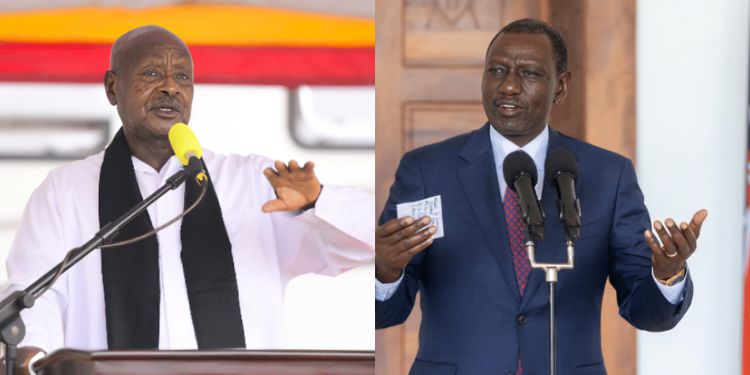The Technical University of Kenya (TUK) is the only Kenyan University offering a degree in Aeronautical Engineering.
The University provides a CF6-80A2 aircraft engine that powers Airbus A310 and Boeing, affording hands-on training to Aerospace Engineering students.
Aeronautical engineering is the branch of engineering that deals with the design, development, testing, and production of aircraft and related systems.
Aeronautical engineers are the talent behind these systems. This field involves applied mathematics, theoretical knowledge, and problem-solving skills to transform flight-related concepts into functional aeronautical designs that can be built and operated.
In practice, that means aeronautical engineers design, build, and test the planes, drones, and helicopters you see flying overhead.
They develop, research, manufacture, and test proven and new technology in military or civilian aviation.
Common work areas include aircraft design and development, manufacturing and flight experimentation, jet engine production and experimentation, and drone (unmanned aerial system) development.
TUK Only Kenyan University Offering an Aeronautical Engineering Degree
The course can be studied for a diploma, an advanced diploma, a bachelor’s degree, a master’s degree, and a PhD.
To be eligible for this course, you must meet the minimum requirements: students must have scored at least a C+ in the Kenya Certificate of Secondary Education (KCSE).
In addition, you must meet the minimum cluster points for the programme. The cluster points for the program are 44.75.
They must have also performed well in the cluster subjects and scored at least a C+ (Plus) in Maths A, C+ (Plus) in Physics, C+ (Plus) in Chemistry, and C+ (Plus) in English or Kiswahili.
Also Read: KU, JKUAT, Kisii University Top List for Most Degree Programmes in 2025
Aeronautical vs. Aerospace Engineering
There is a common misconception that aeronautical and aerospace engineering are the same. However, aerospace engineering is actually a broader field that encompasses two distinct branches:
- Aeronautical Engineering
- Astronautical Engineering
According to the U.S. Bureau of Labor Statistics (BLS), aeronautical engineers work on systems such as helicopters, airplanes, and unmanned aerial vehicles (drones)—essentially any aircraft that operates within Earth’s atmosphere.
Astronautical engineers, on the other hand, focus on objects in space, including satellites, space shuttles, and rocket ships.
The duration of study for BSc. in Aeronautical Engineering and Aerospace Engineering extends for five (5) academic years.
In Kenya, B.Sc. Aerospace Engineering is aoffered at Kenyatta University and Jomo Kenyatta Ubiversity of Science and Technology (JKUAT).
Career Opportunities for Aeronautical and Aerospace Engineering
- Aircraft and Aerospace Design
- Opportunities in satellite design, launch systems, spacecraft engineering, and working with space agencies or private space companies.
- Avionics and Systems Engineering
- Flight Operations and Maintenance.
- Research and Development companies
- Airline and Airport Operations
- Government agencies
- Navigational and control instrument manufacturing
Also Read: Cost of On-Campus Housing for Students at UoN and Kenyatta University
TUK Fees For BSC in Aeronautical Engineering
| Year & Semester | Projected Academic Calendar | Approx. Fees (Daytime/Integrated) in Ksh |
|---|---|---|
| Year 1 Semester 1 | May 2025 – Aug 2025 | 145,000 |
| Year 1 Semester 2 | Aug 2025 – Dec 2025 | 108,000 |
| Year 2 Semester 1 | May 2026 – Aug 2026 | 145,000 |
| Year 2 Semester 2 | Sep 2026 – Dec 2026 | 108,000 |
| Year 3 Semester 1 | May 2027 – Sep 2027 | 145,000 |
| Year 3 Semester 2 | Sep 2027 – Jan 2028 | 108,000 |
| Year 4 Semester 1 | Jun 2028 – Sep 2028 | 145,000 |
| Year 4 Semester 2 | Sep 2028 – Jan 2029 | 108,000 |
| Year 5 Semester 1 | Jun 2029 – Sep 2029 | 145,000 |
| Year 5 Semester 2 | Oct 2029 – Jan 2030 | 108,000 |
Follow our WhatsApp Channel and X Account for real-time news updates







































































